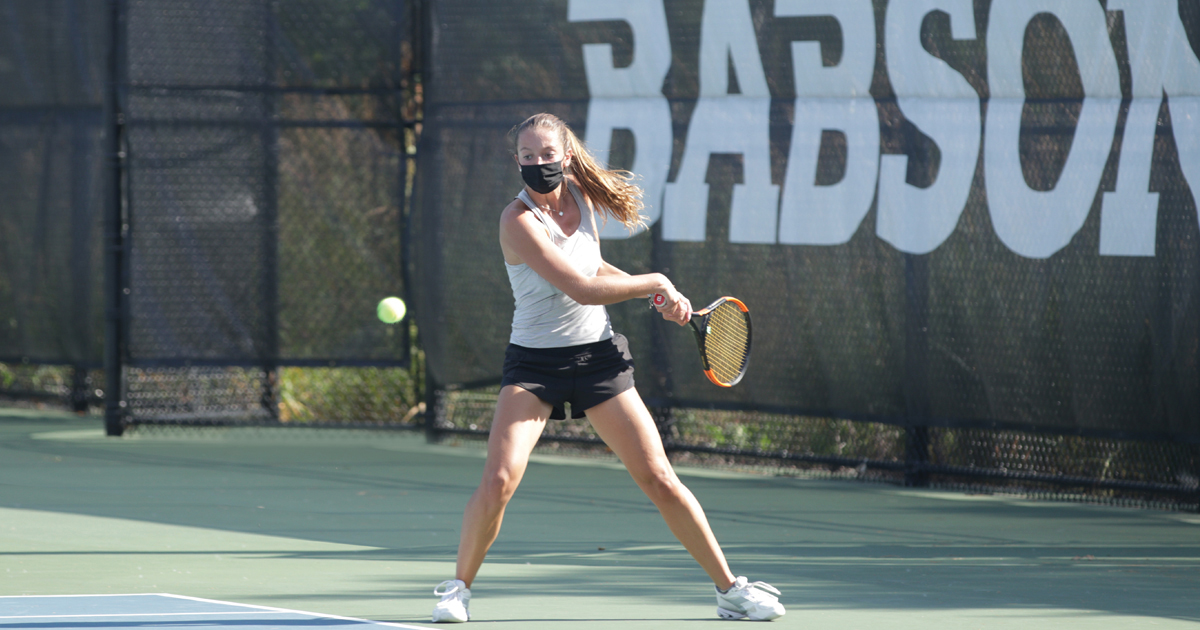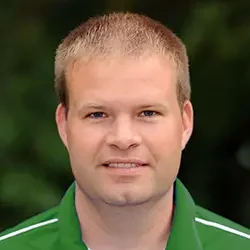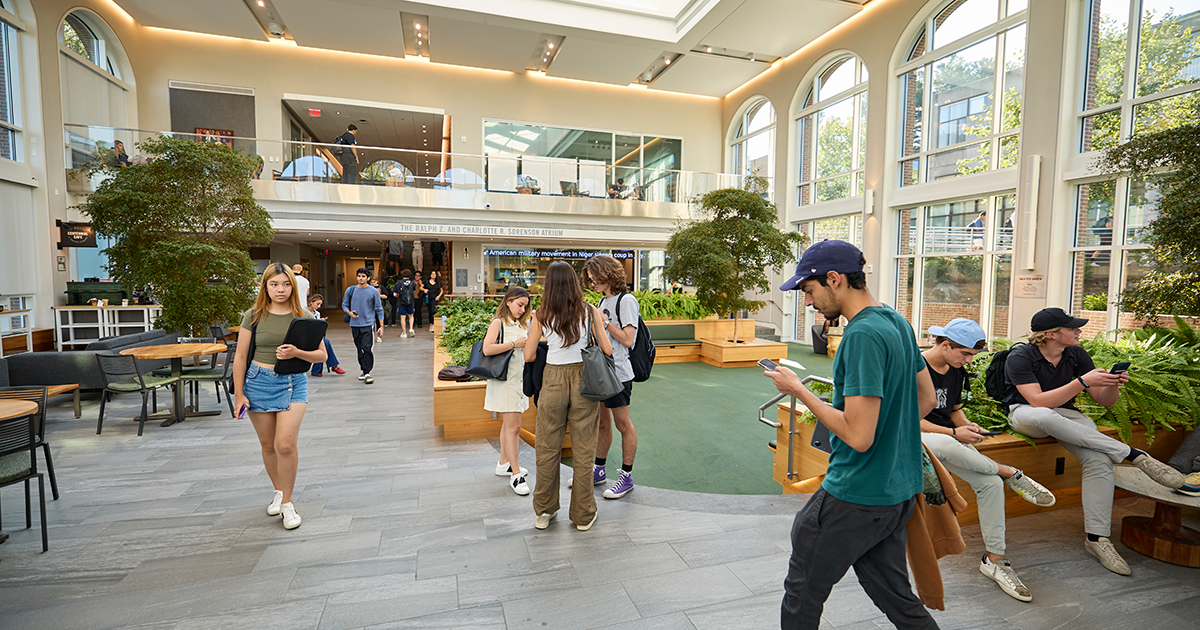Athletic Trainers Keep Student-Athletes on Track by Embracing Telehealth

Ally Kaden ’21 was in a quandary. The women’s tennis player was back home in New Jersey, her season abruptly canceled, and now she was experiencing back pain. But, thanks to Babson’s entrepreneurial athletic training staff, Kaden was properly diagnosed and able to recuperate on her own, more than 250 miles from campus.
The pandemic not only canceled the spring sports season but also disrupted every aspect of student-athletes’ lives, including care from athletic trainers.
Director of Athletics Performance Rick Burr P’21 ’23 and his staff pivoted quickly to find a solution. Team physician Dr. Mininder Kocher from Boston Children’s Hospital’s Sports Medicine Division introduced the staff to telehealth, the virtual distribution of health-related services.
“We were just beginning to understand these platforms,” Burr said. “When we learned Babson was using Webex and found out how protected and secure it was, we started right away.”
Babson became one of the first colleges to begin using telehealth in its athletics department with the first consultations March 22.
On Kaden’s initial Webex call, she went through physical tests with an athletic trainer to pinpoint the pain in her back. The diagnosis was likely overuse, more specifically an issue in her hips that was causing stress on a muscle in her back. Kaden received a rehab routine, and weekly calls focused on her progress.
“It allowed me to connect with my athletic trainer and get me on track for the fall using guidelines I could apply at my own pace,” Kaden said.
Patrick Flynn ’21 (men’s ice hockey), Stephanie Mishler ’22 (women’s track & field), and Zach Roman ’22 (men’s alpine skiing) also were among the first student-athletes to take advantage of the new training technology.
For more news from Babson Athletics, visit babsonathletics.com.
“My apprehensions on telehealth were proved wrong,” Mishler said. “My injury was pinpointed during the call, and I was provided an appropriate recovery plan. It’s a simple way to give a student-athlete the assistance they need for an injury while physically away from school.”
Burr pointed to other telehealth uses, including consultations for medical visits, connections with first-year students before they arrive on campus, communication with student-athletes during breaks, and advising students who need to be seen immediately.
“Telehealth is something we’re going to use moving forward,” Burr said. “It’s a drastic change in how we’ve operated in the past, but in many cases a great way to remain connected with our student-athletes.”
Posted in Community




